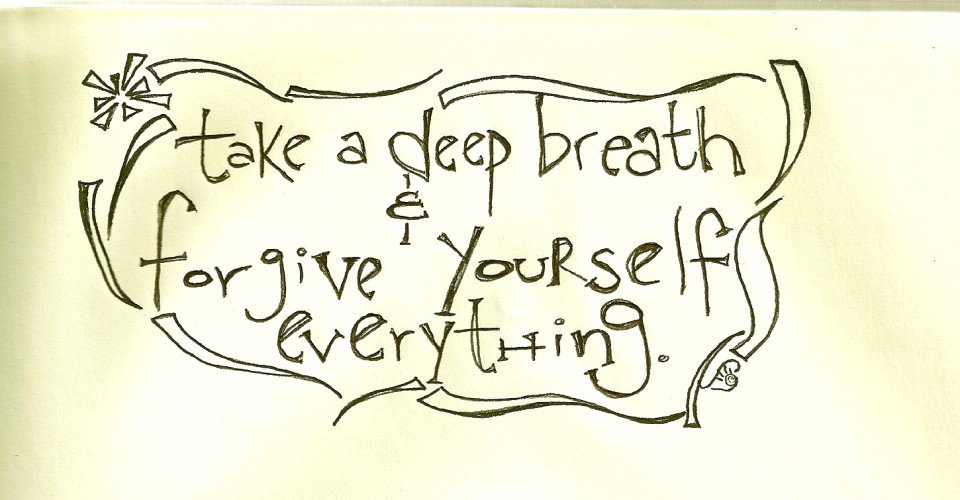“We have to remember, when we forgive we’re not doing it just for the other person, we’re doing it for our own good. When we hold on to unforgiveness and we live with grudges in our hearts, all we’re doing is building walls of separation”. ~Joel Osteen
The most difficult person for us to forgive is usually ourselves. Regret, shame, and guilt prevent us from letting go of our past mistakes. Rather than reflecting on the experience and learning from it so that we can move forward, we tend to dwell on these unfortunate times.
By refusing to forgive ourselves of our regrets, we remain trapped in the past.
We have all experienced this and you are not alone. The good news is that there are some simple strategies that can help you come to terms with the things that you have done in the past, learn from these missteps, and embrace a future that includes a fulfilling life.
Try these strategies to help you forgive yourself and move forward:
- Be honest with yourself and others about your error and hold yourself accountable. Reflect on the mistake that you’re unable to get over. Clearly identify what you did or didn’t do, and own up to it instead of trying to justify your actions.
- Being honest with yourself and stating where you went wrong is the first step to releasing the pain, guilt, and shame that you feel.
- Examine the events and circumstances that led to your faux pas and be honest about how you felt then and are feeling now.
- Consider how your mistake impacted others in both a physical and emotional sense.
- Talk about your slip-up with a close friend, relative, counselor, or religious leader that you trust. Seek their opinion, feedback, and guidance about the severity of your error. It’s likely that they’ll see your mistake in a more forgiving light than you do.
- Try to remedy the situation and make amends. Consider what you could have done differently to prevent your misstep, and develop a plan to act differently if you face a similar situation in the future. This can help you forgive yourself.
- Even if it has been quite some time since the situation occurred, if the result of your blunder caused harm to others, consider offering an apology and asking for forgiveness. This action alone can be very healing for both you and the person that suffered harm as a result of your mistake.
- If you’re unable to make amends with those who were directly affected, consider doing good deeds and acts of kindness to show to yourself and others that you truly regret your actions.
- If your poor decision resulted in a monetary loss, seek to make restitution.
- Share your story with others so that they might be able to avoid making the same error.
- Realize that you’ve grown and you’re no longer the same person that made the original slip-up. Continue to seek ways to help others and avoid actions that might lead to a similar lapse of judgment in the future.
All of us make mistakes, and sometimes they come with serious and grave consequences. Regardless of how serious our errors might have been, all of us deserve forgiveness. Seizing the opportunity to repent and make amends will help everyone involved heal and put it in the past.
If you would like support in this area and would like to experience real transformation and growth, set up a discovery session with me. https://emergentsoul.simplybook.com
Tags: forgiveness mindset











